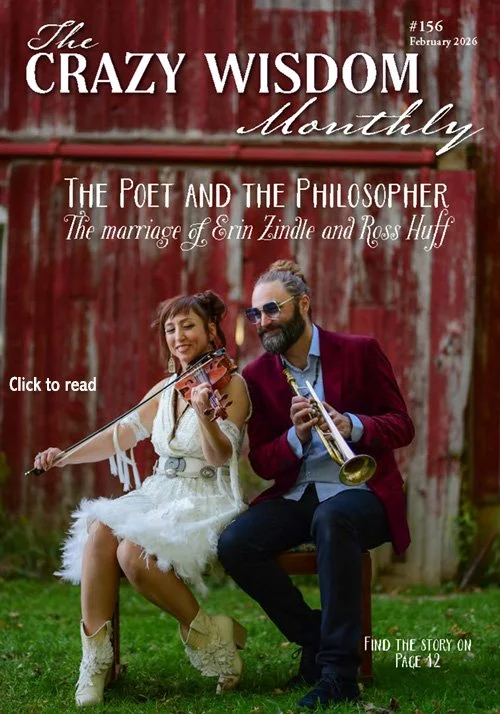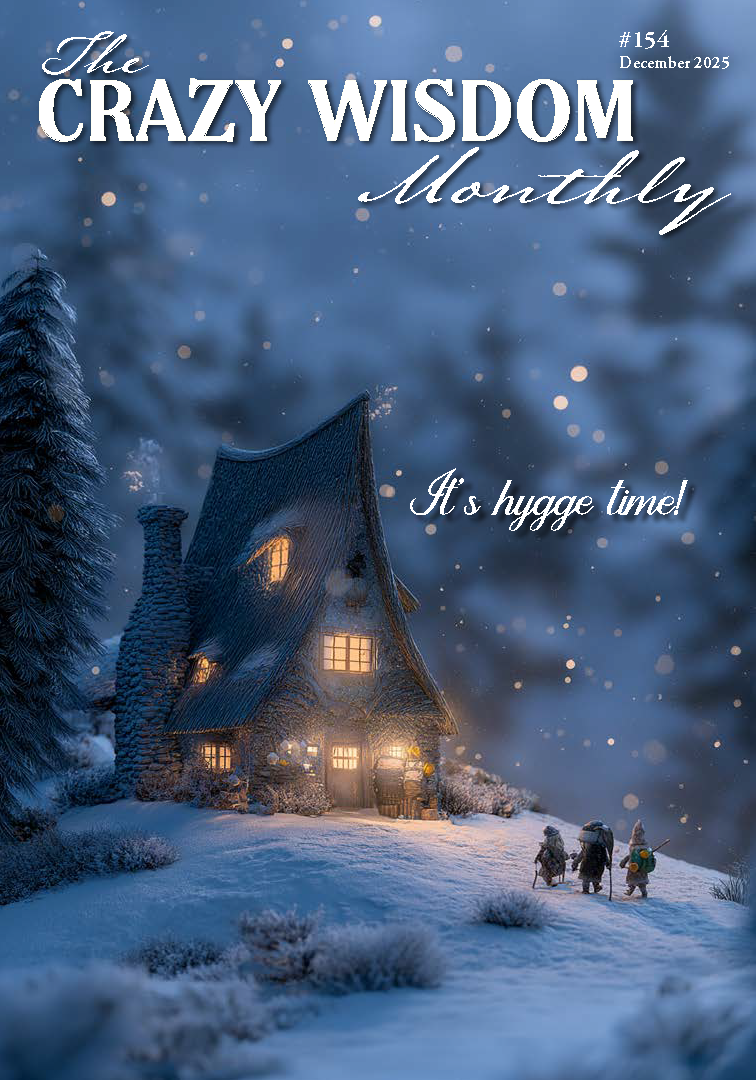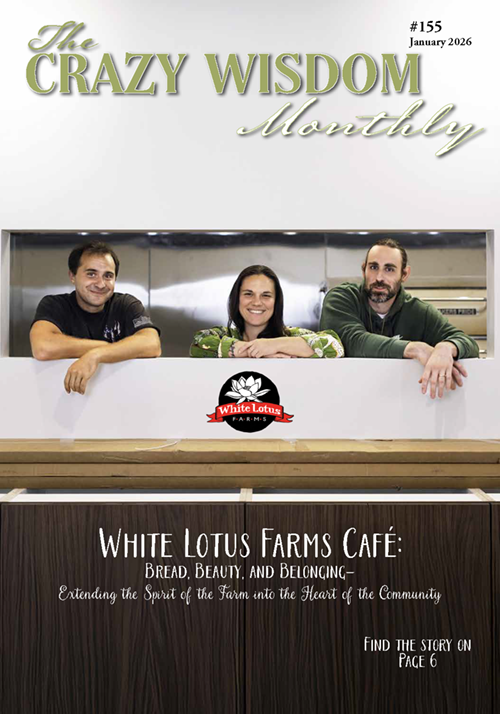After 32 years of marriage, I discovered how The 5 Love Languages—acts of service, words of affirmation, physical touch, quality time, and gifts—deepen connection. From sunroof surprises to quiet dances, real stories of love that lasts.
Embracing Uncertainty
We have all experienced how the work environment has changed over the last fourteen plus months. Things that would have taken us 5 to 10 years to set in motion have accelerated, virtually overnight. Our ability to connect with others all over the globe has been transformed with the click of a single button. The ability to make a living through technology has made more progress in these last few years than the last 100. Our world has changed in the blink of an eye.
Being OK with Not Being OK – Medusa Redefined
Earlier I described a process whereby parts of us stay behind and argued that our psychological wellbeing requires all parts of the psyche to be anchored within the home-body. That was a call to reunite our many parts in service of living in the best and fullest way possible, which can only happen in the present. I want to repeat Rilke’s words that the point (of life) is to live everything, and build on this idea by inviting contemplation on how to navigate our negative emotions, which are the hardest to feel.
Importance of Honoring
We honor ourselves by honoring not only the past, but the present, and the future as well. Honoring the past includes people, places, phases of life, and memorable events. Honoring the present includes the good, the bad, and the ugly. And we honor the future through making space for our hopes, dreams, and wants.
Societies throughout history and across cultures have grasped the importance of honoring through the creation of an innumerable variety of ceremonies that facilitate it. Let’s contemplate the concept of honoring further.
On Courage and Resilience
Rollo May was the first to introduce me to the idea that there are different types of courage. I was reminded of this idea through a Facebook meme I came across recently which listed six types of courage. All of us are naturally courageous in some ways, and not so much in others. All of us could increase our resilience with different types of situations requiring courage, should we want to. Keep in mind Aristotle’s golden mean idea, which views too much courage as recklessness, and too little as cowardice.
When Parts of Us Stay Behind
An interesting thing happened to me when I returned from a long awaited and wonderful summer vacation back home. I didn’t even recognize what was going on until after some time passed and I noticed I wasn’t quite myself, I needed more time than usual to adjust to my everyday life; it was as if I wasn’t all here.
Shapeshifting
What resides in our unconscious is as much a part of who we are, and how we behave, as what makes up our consciousness. The language of the unconscious is imagery. The rules by which it functions are mythical. Science seems to lag behind the arts in its grasp of the paradoxes inherent to humanity. The psyche expresses itself through symbol and metaphor that can best be understood through stories, as stories allow for the unknown. Stories tolerate mystery.
Mother Nature
I have been paying close attention to our backyard for many years now, and know which tree will be the first to turn green (the little willow by the pond), which wildflowers will bloom first, how much progress the moss has made in its fight for territory over the grass. Because I am unable to convince others let alone my husband that our attachment to lawns is not the best idea, we have plenty of it in our backyard, but due to our lack of chemical warfare against Mama Nature’s preferences, moss and some clover types are beginning to make their claim
What's in a Name?
I wanted to share this to hopefully bring some lightness to our struggles with what is foreign to us, hard to pronounce, or even hard to understand. We can get too caught up in getting things right, worrying we will offend, or thinking we are not respectful if we don’t do the extra effort it takes to get it right. Consider that what come easy and natural to you, even though it veers from the original, might actually add to someone’s memory space, and enrich their lives
Persephone’s Daughter
As is often the case, when I first finished this painting, I had little knowledge of the insights it held in store for me. The first revelation came when my husband commented that the fish to the left was not in a natural position, that it wasn’t moving. Often the very section of a painting that doesn’t make sense holds great jewels to unearth about what lies in the deeper layers of the psyche.
Before I Was A Psychologist
The person I looked up to most at the tennis club was a part-time instructor named Lou Graves. He was a teacher in a juvenile detention center and would kid me that I reminded him of some of his delinquents. What he meant was that I had a temper, even though my temper hadn’t gotten me into any legal trouble. It just got me into an occasional fight, including with some of my tennis opponents when I began competing in tournaments.
Goddesses –Who are they, really?
I’ve been taking online art classes offered by the Art of Allowing Academy for over a year, learning to paint the female face through connecting to the Divine Feminine. Connecting to the intangible happens through the allowing process, letting of the feminine form appear on the canvas and following it with your hands. In other words, going with the flow as opposed to a planned execution. And making an appearance She has been!
Energy Psychology – Rebalance and Create Health and Well-being
Energy Psychology is a family of healing methods that balance subtle energy pathways to rapidly diminish disturbances in thought and emotion. Unlike conventional therapies, the person doesn't have to relive the pain of the problem over and over again.
Meeting Fear
By Brian O'Donnell
I want to say more about what it takes to access this “inner doctor,” which can wisely guide us in whatever health crisis may come our way. In my last blog entry, I spoke about re-framing the issue from one of seeing the health crisis as an enemy to one of seeing it as an ally. In this perspective, I was pointing out a conceptual shift.
Today, I want to address the energetic or emotional dynamics and shifts that foster the emergence of the “inner doctor.” Basically, it’s how we meet fear. Learning how to meet fear in a constructive way is the medical school curriculum for accessing this “inner doctor.” This, obviously, isn’t only applicable to health crises but to everyday threats to our apparent security. So what we can learn about ourselves in meeting health fears can serve all aspects of our life.
““What we can learn about ourselves in meeting health fears can serve all aspects of our life.””
Most of us have an unholy relationship to fear. We deny it, exaggerate it, project it, submit to it, revel in it, squash it…. Fear often elicits a contraction and a desire for control. We want to get on top of it, to rise above it, and to manipulate it. Cramping seems a better course than imagined annihilation, if we were to dare feel it. There are two basic energetic forms of manipulation or control that all of us use to defend from any undesirable feeling. One is to restrict the feeling. We attempt to control by squeezing the life out of it. The other maneuver is to amplify the pain, to make it larger than it is. We dramatize the pain or feeling as an attempt to force life, God, or the other to submit to our will. Our real task is to observe the emotional manipulations and to begin to allow the spontaneous flow of fear (or any feeling).
Fear calls for a sense of safety, yet true security is nakedness to the moment, not some constructed edifice of protection. We don't need protection from real feelings. Fear, sadness, anger — any expression of real feeling — cannot harm us. What truly harms us is our defending against pain, vulnerability, and helplessness.
““Do we see life in its ultimate nature as chaotic, destructive, or evil? Or do we possess a sense of life as wholesome, trustworthy, and loving?””
To meet fear without defense or obstruction gets to the heart of our fundamental view of life. Do we see life in its ultimate nature as chaotic, destructive, or evil? Or do we possess a sense of life as wholesome, trustworthy, and loving? This is where our spiritual orientation shapes our basic response to life. My experience is that evil or destructiveness does exist on the relative plane of reality and that it is a function of resistance to pain and suffering. So to the extent we can allow all feeling — undesirable and desirable — without repression or exaggeration — we can enter the consulting room of the wise “inner doctor.” We also get a taste of heaven on earth.
I end with a quote from one of my teachers - the Pathwork.
“Through the gateway of feeling your weakness lies your strength;
through the gateway of feeling your pain lies your pleasure and joy;
through the gateway of feeling your fear lies your security and safety;
through the gateway of feeling your loneliness lies your capacity to have fulfillment, love, and companionship;
through the gateway of feeling your hate lies your capacity to love;
through the gateway of feeling your hopelessness lies your true and justified hope; through the gateway of accepting the lacks of your childhood lies your fulfillment now.”
— Pathwork lecture #190 ; © Pathwork Foundation
Brian O’Donnell, Ph.D., is a psychotherapist in private practice in Ann Arbor. He also teaches the Pathwork, a contemporary spiritual course of self development. (He was interviewed about his work in the January thru April 1997 issue of the Crazy Wisdom Community Journal, available at the bookstore.)
Related Content:
Accessing Your Inner Doctor
By Brian O'Donnell
A fundamental shift of perspective is needed if we are to have access to the “inner doctor” that I referred to in the article Threading the Eye of the Needle. This “inner doctor” possesses a much broader and deeper resourcefulness than the limited and fragmentary perspective of the everyday egoic mind.
The World of Images, Symbols, and the Unconscious: A Source of Healing
We are definitely a product/progress/accomplishment oriented society and most of our psyches are deeply craving the opposite as a result. The permission to enter and stay in the non-doing is often a gigantic challenge for most of us, let alone someone who has spent a lifetime doing what is expected of her, since it meant survival.




































































































































































































After 32 years of marriage, I discovered how The 5 Love Languages—acts of service, words of affirmation, physical touch, quality time, and gifts—deepen connection. From sunroof surprises to quiet dances, real stories of love that lasts.